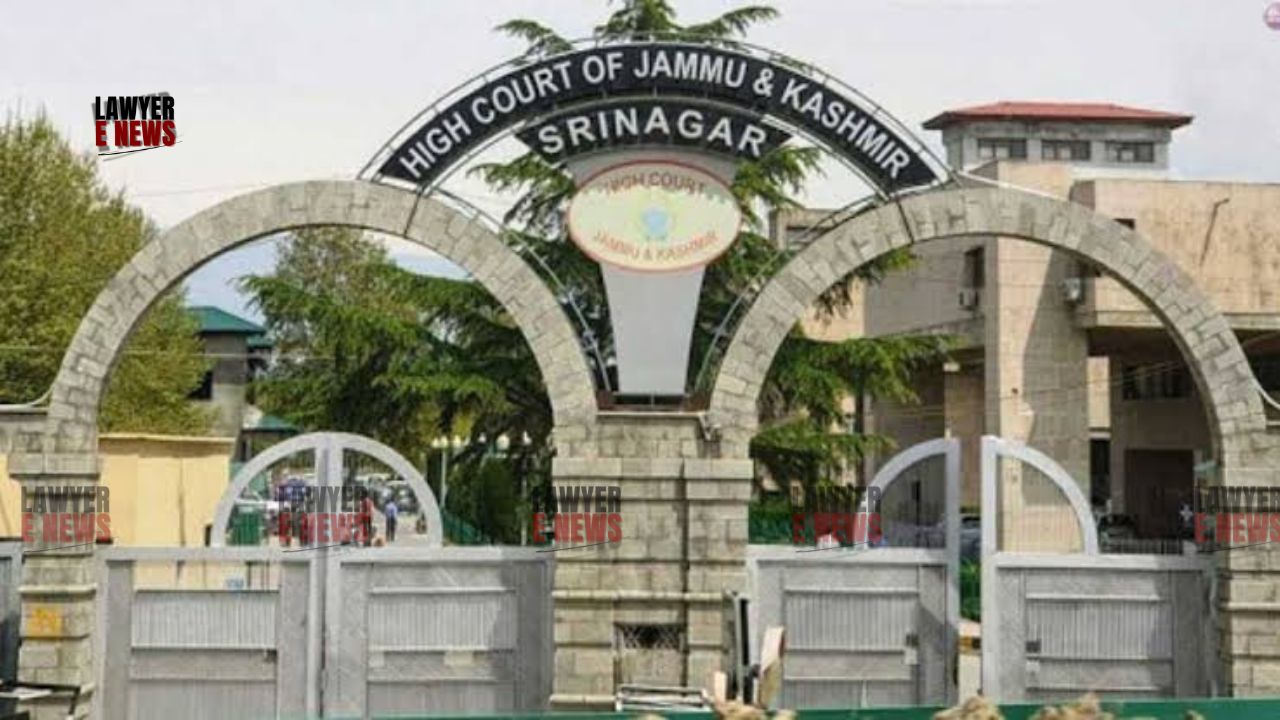-
by Admin
15 February 2026 5:35 AM



Jammu & Kashmir High Court dismissed a review petition in Abdul Rashid Rather & Ors. vs. Nabir Rather & Anr., affirming that issues regarding the validity of adoption and will under Mohammadan law could not be re-litigated. The court held that the doctrine of res judicata applied, as these issues had already been conclusively settled in earlier litigation.
The case originated from a suit filed in 1966 by the predecessor of the respondents, seeking a declaration of ownership based on adoption by Mohammad Rather and challenging interference with the property by the defendant. The trial court, in 1974, ruled in favor of the plaintiff, declaring him the owner of a portion of the disputed land based on the adoption.
The case was appealed multiple times, with the first appellate court upholding most of the trial court's findings in 1987. The petitioners, who were the legal heirs of the defendant, did not challenge these findings at the time but later filed a second appeal raising the issue of adoption’s validity under Mohammadan law.
The primary issue was whether the adoption and will were valid under Mohammadan law, which traditionally does not recognize these concepts. The petitioners contended that the lower courts had erred in recognizing adoption and that the case raised a substantial question of law that merited reconsideration.
The petitioners also argued that the recent enactment of the Jammu and Kashmir Muslim Personal Law (Shariat) Application Act, 2007 should affect the case, as it mandates inheritance strictly under Mohammadan law.
The High Court, presided by Justice Sanjay Dhar, dismissed the petition, holding that the doctrine of res judicata barred the reconsideration of the adoption and will. The court emphasized that these issues were conclusively decided in earlier rounds of litigation and could not be reopened.
The court cited Satyadhyan Ghosal vs. Deorajin Debi (1960), a Supreme Court ruling affirming that once a court has decided a matter, the same issue cannot be re-litigated in subsequent stages of the same proceedings. Since the petitioners had not challenged the trial court's findings in the first appeal, they were precluded from doing so now.
The court also rejected the argument regarding the Shariat Act, stating that the law did not apply retroactively and was not relevant to property disputes settled before its enactment.
The review petition was dismissed, and the 1974 judgment declaring the validity of the adoption and will was upheld. The court ruled that no error was apparent on the face of the record, and the judgment did not merit reconsideration.
Date of Decision: September 26, 2024
Abdul Rashid Rather & Ors. vs. Nabir Rather & Anr..
